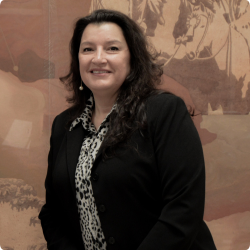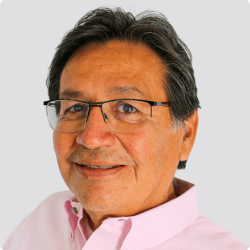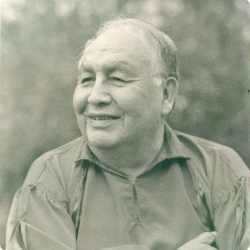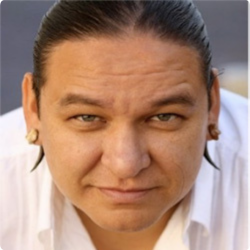The Truth, Restoration, and Education Commission (TREC) is working to examine the true history of Colorado and what lead to the genocide of Indigenous Peoples in Colorado. Currently, TREC is working on an Economic Loss Assessment and will use this report to develop recommendations for restoration and as a means of educating the Colorado Community.
The People of the Sacred Land work focuses on the Nations who had ceded Treaty land in Colorado. The Truth, Restoration, and Education Commission (TREC) focuses on all of the Nations that ceded land except the Bannock Nation.
Those Nations and the information about their ceded land are as follows:
Comanche and Kiowa, Oct. 18, 1865; Camp on Little Arkansas River
End Note: In the Annual report of the Bureau of American Ethnology to the Secretary of the Smithsonian Institution, Volume 18, Part 2. Indian Land Cessions in the United States, compiled by Charles C. Royce 1899; multiple pages and maps.Cheyenne and Arapaho of Upper Arkansas, multiple Bands

Cheyenne and Arapaho Tribes
Dorestt is a member of the Cheyenne and Arapaho Tribes. She currently resides in El Reno, Oklahoma, and serves as the Chief of Staff for the Cheyenne and Arapaho Tribes.
Ms. Dorsett has a Bachelors in Social Work from East Central University and two Masters of Education from the University of Oklahoma. Ms. Dorsett has worked for her Tribe for more than 25 years serving in various capacities, including Executive Director of Administration, Executive Director of Education, Indian Child Welfare and Substance Abuse Coordinators, and Lt. Governor.
She has also worked for UNITY, United National Indian Tribal Youth, and SIPI, Southwestern Indian Polytechnic Institute out of Albuquerque, New Mexico. Teresa served two terms as the President of the Oklahoma Council for Indian Education.

Kiowa and Cherokee
For over 40 years, Rick has been actively involved in advocating on behalf of the American Indian community through both his professional and personal life. From supporting higher education opportunities for Native students at the University of Colorado-Boulder, University of Phoenix, and the American Indian College Fund, to helping serve the Native community in the Denver Front Range area through his work at the Denver Indian Center, Rick has dedicated his life to Indian Country. In promoting self-determination and self-reliance, Rick points to the importance of the family and the roles each member is responsible for while taking into account traditional Native American beliefs and values. Originally from Oklahoma, Rick is currently the Executive Director of the Denver Indian Center, Inc,. and has lived in Colorado since 1984. A graduate of the University of Oklahoma, Rick is married with 2 daughters and 4 grandchildren.

Northern Cheyenne
Dr. Littlebear was born in Lame Deer, MT on the Northern Cheyenne Reservation. He attended school in Busby MT to the 8th Grade.
He graduated Lind (WA) High School, attended two community colleges in Washington, Centralia and Wenatchee Valley and eventually graduated at Bethel College in N. Newton, KS; served in the US Army in 1965-1967, was honorably discharged. He earned a master’s degree in school administration at Montana State U. in Bozeman; earned an Ed.D.in 1994 school administration from Boston University, in Boston, MA.
He worked on his home reservation for many years in various capacities, mostly in education. He then worked for a multicultural service center based in Beaverton, OR. He transferred to a new job with the same organization in Alaska, where he worked until August 1996, when he returned to the N. Cheyenne Reservation as the Chief Dull Knife College Dean of Cultural Affairs, until he was selected President on September 1999.
Presently, he is the outgoing President of Chief Dull Knife College in addition to being the interim Dean of Cultural Affairs. His organizational present and past memberships include the following: American Indian College Fund located in Denver, CO; American Indian Higher Education Consortium, located in Alexandria VA; Indigenous Languages Institute, located in Santa Fe, NM; the Boys and Girls Club of the Northern Cheyenne Nation, located in Lame Deer, MT; a commissioner on Northwest Commission on Colleges and Universities, located in Redmond, WA; member of the Montana Tribal College Presidents’ Association located in Montana; ex offico of the Northern Cheyenne Coalition to Preserve the Cheyenne language located on the Northern Cheyenne Reservation; member of Sand Creek Massacre Foundation located in Denver, Colorado.
His wife, Janice Jo Littlebear, Ph.D., is an Educational Consultant for the Alaska Teacher Mentor Program at the University of Alaska Fairbanks and also directs/teaches at the Alaska Pacific University in Anchorage, AK. She earned a Ph.D. from the University of Alaska Fairbanks.
The Cheyenne language is Dr. Littlebear’s, first language. He learned to read and write the Cheyenne language; he considers these his greatest academic achievements.

Northern Arapaho
Dallin Maybee is Seneca and enrolled Northern Arapaho. Raised on the Cattaraugus territory of the Seneca Nation of Indians in Western New York, he is an accomplished artist, public speaker, performer, and is currently the Assistant Director of Development at the Native American Rights Fund (NARF). Dallin has a B.A. degree in Philosophy, as well as a Juris Doctorate from the Sandra Day O’Conner College of Law with an emphasis in Federal Indian Law.
NARF, a fifty year old legal nonprofit, provides high-level legal advocacy for individuals and tribes throughout the United States. They are experts and thought leaders in Federal Indian Law, and their casework and programming serve tribal communities in a variety of environmental, racial equity, and social justice areas. Prior to NARF, Dallin was the Chief Operating Officer and Executive Director of the 98 year old Southwestern Association of Indian Arts- the nonprofit that produces the acclaimed Santa Fe Indian Market. Dallin’s performing arts background has taken him across the world, including with the renowned American Indian Dance Theater as well as the Peter Buffet production Spirit the Seventh Fire.
As an artist, his work can be found in private collections and museums across the country; including the Smithsonian’s National Museum of the American Indian, the Autry Museum, the Heard Museum, and the Portland Art Museum. He has won numerous awards including Best of Show at the prestigious Santa Fe Indian Market (2007), the Cherokee Art Market (2020), the Hodinohso:ni’ Art Show (2021), and Tesoro Indian Market (2021).
People of the Sacred Land is a Colorado-based nonprofit working to uncover the truth about American Indian history in the state. The purpose of the People of Sacred Land is to support American Indian people who are citizens of the State of Colorado to preserve their culture, language, and ways of life that were intimately tied to the land.
© 2024 People of the Sacred Land